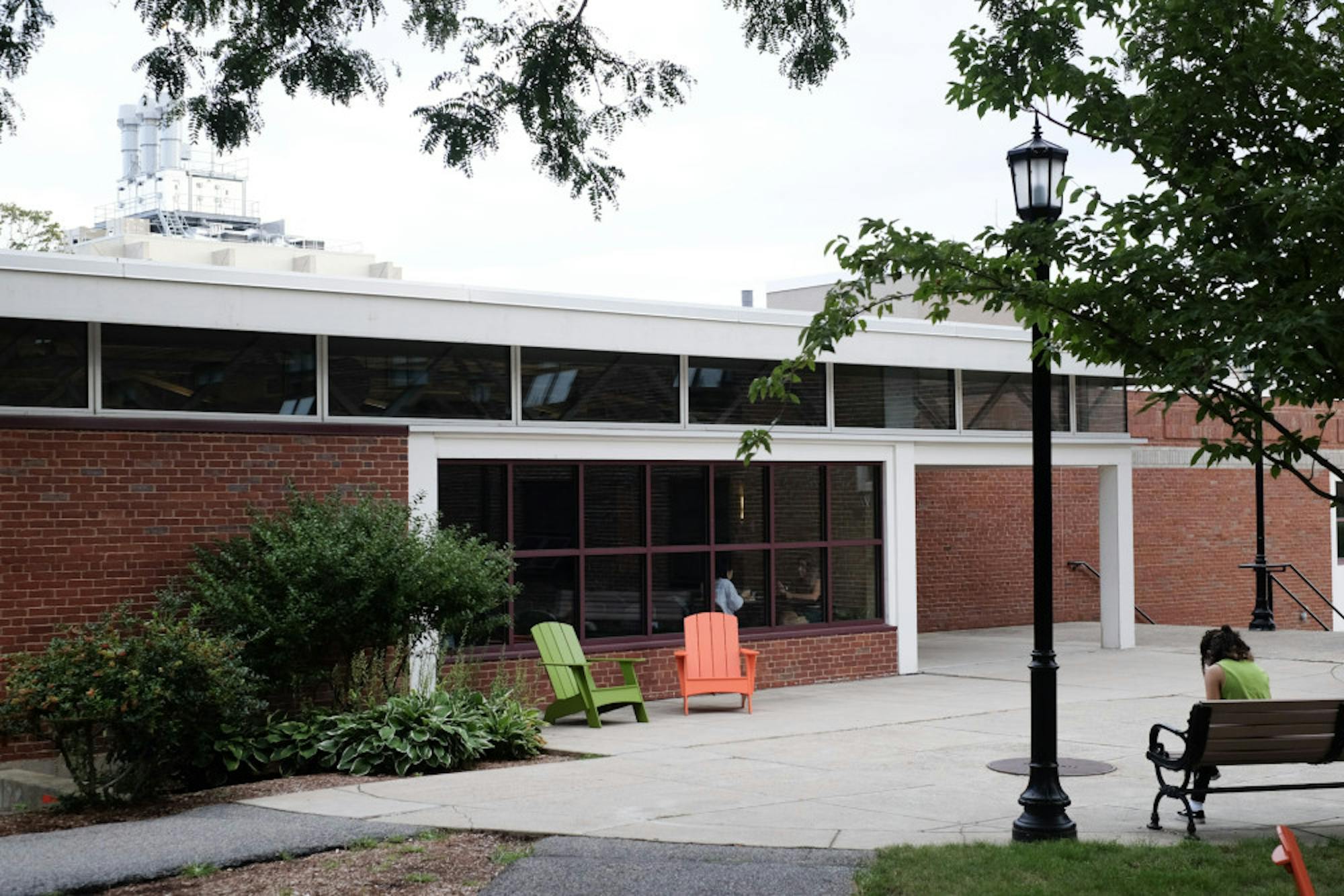Despite threats from city councilors, the lodging license renewal for 31 Tufts University properties in Somerville passed Somerville City Council’s Licenses and Permits Committee unanimously.
The normally mundane annual license renewal gained attention when Ward 4 City Councilor Jesse Clingan and City Councilor-at-Large Will Mbah, who is also running for mayor, said during a Sept. 9 City Council meeting that they would oppose the permit renewals unless Tufts paid all of its dining workers summer wages.
However, Clingan and Mbah later dropped their threats during the Sept. 22 meeting of the city council’s three-member Licenses and Permits Committee. Clingan does not sit on the committee.
The three members of the committee, which includes Mbah, then voted unanimously to renew the permits, which will now go to a full vote of the city council to be approved.
Before the committee voted, Rocco DiRico, executive director of government and community relations at Tufts, argued that city councilors did not have the jurisdiction to vote “no” on this issue other than for inspectional and operational reasons, and that if the lodging permits do not pass, many Tufts students living on campus would be forced to live off campus.
At the Sept. 9 council meeting, Clingan expressed that Tufts does not do enough to support its dining workers.
“Tufts President Tony Monaco gets paid for three months of work $273,847, a Tufts Dining worker gets paid for three months of work $9,594,” Clingan said at the Sept. 9 meeting. “I can’t support an institution that doesn’t support its workers who were there for them through the pandemic when [the workers] would have to individually wrap every meal and deliver them to students. They went above and beyond and then they were treated like this.”
Mbah, who is casting himself as the mostprogressive option in this year’s mayoral contest,seconded Clingan’s comments and said on Sept. 9 that he would not support the renewals.
Over 130 dining workers ineligible for summer work at Tufts weredenied unemployment benefitsclaims by the Commonwealth of Massachusetts. However, Patrick Collins, executive director of media relations, said in July that only 70 employees had filed for unemployment claims at some point.
Dining workers noted that their claims were successful during summer2020 and argued that as their contracts do not specify whether they are yearlong or academic year, they were, in effect, laid off by Tufts during the summer, which legitimized their unemployment claims this year.
DiRico suggested on Sept. 9 that dining workers' claims were unsuccessful not because Tufts violated its contract with the workers, but because the Massachusetts Department of Unemployment Assistance didnot extend a relaxation of unemployment criteria that was instated during the previous summer due to the COVID-19 pandemic.
The Somerville City Council has vocally supported Tufts Dining workers in their disputes with the university ever since it unanimously endorsed their unionization campaign in 2018.
Clingan was among those whodemonstrated on campus this July in support of the workers’ summer pay demands. Other elected officials and candidates present included Katjana Ballantyne, Ward 7 city councilor and Somerville mayoral candidate; Mary Cassesso, Somerville mayoral candidate; and Judy Pineda Neufeld, candidate for Somerville City Council Ward 7.
Though Somerville residents and Mayor Joe Curtatonehave floated threats to become firmer with Tufts over issues like payment in lieu of taxes, Clingan and Mbah’s threats over the permits last month represented the closest the city has come to putting those words into action.
Tufts is required to obtain housing permits from its host communities every year under state law. In Somerville, a lodging house is defined as “a house operated for profit, where rooms are let to four or more unrelated persons, including fraternity houses and school dormitories.”
When asked about the consequences for Tufts should the lodging permits not be granted, DiRico conceded that Tufts would not be able to house many of its students on campus.
“We have 4,000 students on campus, and, without lodging licenses, they would have to find housing elsewhere,” DiRico said.
Council President Matt McLaughlin subsequently referred this dispute to the Licenses and Permits Committee.
Three City Council members of the Licenses and Permits Committee — White, Mbah and Scott — were all present at the Sept. 22 meeting.
Clingan, though he is not a member of the committee, announced before the vote that he would like to see Tufts compensate its workers for their losses over the summer.
“I spoke to all the interested parties, and I am fine with these [renewals] moving forward, although I just want to say that I think that Tufts handled this entire situation really poorly,” Clingan said. “I’d like to urge Tufts to sit down with those workers and with the union representatives to work something out.”
Alexander Thompson contributed to the reporting of this article.






